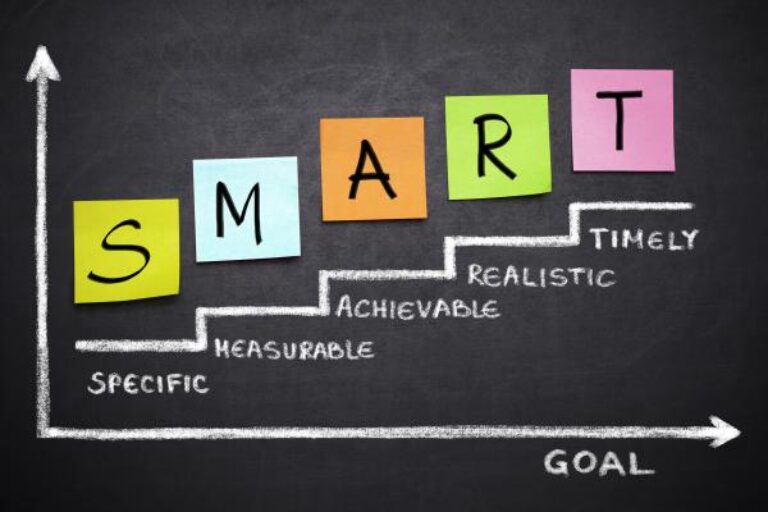How to set goals
The kinds of goals that are easiest to achieve are called SMART goals.
SMART stands for Specific, Measurable, Achievable, Relevant and Timely.
If you set a goal that is specific you know the answers to:
- Who is going to support you to reach your goal?
- What do you want to do?
- When do you want to start?
- Where will you start? For example, your goal might be something you can do at school or at home.
Content Section
Some examples of specific goals are:
- I want to study Psychology at La Trobe University. This is more specific than a goal like ‘I want to go to university.’
- I want to get a part time job at a shop in the suburb where I live. This is more specific than a goal like ‘I want to get a job.’
Measurable means that you know when you have reached your goal, or if you are getting closer.
Some examples of measurable goals are:
- Going to the movies 2 times a month. This is more measurable than ‘See more movies.’
- Practice driving 3 times a week. This is more measurable than ‘Get good at driving.’
Achievable means that your goal is not impossible, you can actually do it.
Some examples of achievable goals are:
- Getting your driving licence when you are old enough.
- Getting a job at your local cafe.
Relevant means that it is a goal that will support you.
Some examples of relevant goals are:
- Writing a resume if you want to get a job.
- Driving lessons if you want to get your driver’s licence.
Timely means that you have a start date for your goal and an end date for when you want to reach it.
Some examples of timely goals are:
- By 30 April I want to sit my driving test.
- I want to have a job by the end of this year.
Content Section
When you put all of these things together, an example of a SMART goal is:
- I want to start my Psychology degree at La Trobe University’s Melbourne campus in March 2021. I want to study part-time.
